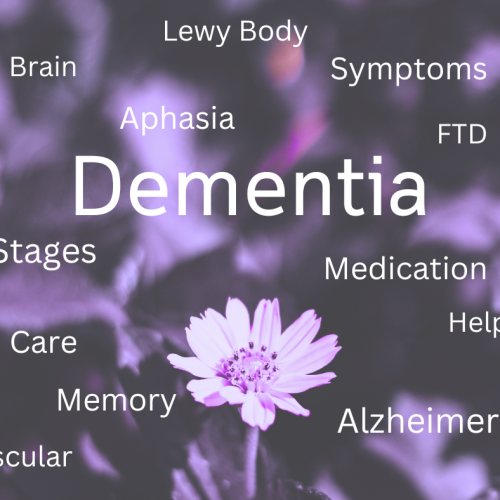Normalizing Dementia Education: Enhancing Care and Building Support

Having been a nurse for decades, working with countless patients with nearly every diagnosis out there, I have observed that dementia care education is often overlooked. Dementia, a progressive condition affecting millions worldwide, remains shrouded in misunderstanding and stigma. Unlike other medical diagnoses such as diabetes or hypertension, dementia is often met with fear, alienation, and questions. This disparity highlights a pressing need for normalized dementia education, which can foster understanding, empathy, and better support systems for individuals and their caregivers.
The Importance of Education
Educating the public about dementia is needed. A common misconception is that dementia is simply a part of aging, rather than a complex set of symptoms that can vary greatly from person to person, and severely impacts cognitive function and quality of life. By understanding dementia, we can change the narrative from one of fear and questions to one of informed compassion. This knowledge equips people with the tools to interact more effectively and empathetically with those affected, reducing the social isolation that so many individuals with dementia experience.
Combating Alienation
One of the most heartbreaking aspects of dementia that I witness is the social alienation that often accompanies the diagnosis. Family and friends may withdraw, not out of a lack of care, but out of uncertainty about how to engage with their loved one. They might not know how to handle changes in behavior and personality, memory lapses, or communication barriers. Visitors may find it difficult to see these changes or feel uncomfortable engaging in what they perceive to be a one-sided conversation.
This alienation leaves the caregiver feeling even more vulnerable navigating a sometimes-challenging care path without support. Normalized dementia education can provide practical strategies for maintaining relationships and ensuring that those with dementia remain connected to the people that matter most to them. This will also prevent the caregiver from feeling alone in the journey.
A Gap in Education at Diagnosis
From my experience, when patients are diagnosed with dementia, there is often a lack of comprehensive education provided to them and their families. Medical professionals may complete comprehensive assessments and deliver the diagnosis but fail to offer sufficient information on what to expect, how to manage symptoms, or where to seek support. This gap leaves families feeling overwhelmed and unprepared to care for their loved one.
A dementia diagnosis should include the same support as a patient who is diagnosed with another condition. For example, patients diagnosed with diabetes are often offered a consultation with a diabetes educator and a nutritionist to assist in managing their condition. This same practice doesn’t transfer to those diagnosed with dementia.
As a dementia care consultant, I find that patients typically reach out to me on average about two years after diagnosis. By this time, they are often grappling with significant caregiver burden or challenging behaviors that make aging in place difficult. This delay in seeking help highlights the critical need for early and comprehensive dementia education to better prepare families for the journey ahead and mitigate the emotional and physical toll on caregivers.
Accessible Education
When patients receive a dementia diagnosis, they should be proactive in learning as much as they can. This knowledge helps with the care path and future planning, ensuring that both patients and their families are better prepared. Early education can provide critical insights into managing symptoms, understanding the progression, available resources and support systems. It’s easier to learn and absorb information before you’re overwhelmed by a crisis.
Consider seeking additional education with local resources such as the Office on Aging & Independence, Memory Cafe’s and support groups. You can find a wealth of information with the Alzheimer’s Association, National Institute on Aging, and other credible online sources. “The 36-Hour Day” by Nancy L. Mace and Peter V. Rabins is a book that provides valuable insights and practical advice. If you are searching for one-on-one personalized education and support, connect with a dementia care consultant.
Conclusion
Normalizing dementia education will foster understanding and reduce stigma so we can ensure that individuals with dementia live with dignity and connection. Comprehensive education at the diagnosis can alleviate the caregiver burden and help prepare for the future. Let’s make it acceptable and standardized for patients and their families to seek knowledge for managing dementia, the same as they do for other diagnoses.
To contribute to this cause, Dementia Care Sessions with Nurse Andrea, are coming soon. These virtual sessions will aim to provide accessible, practical knowledge to families, caregivers, and the community. In a world where dementia education is normalized, we can transform fear and isolation into compassion and community.
